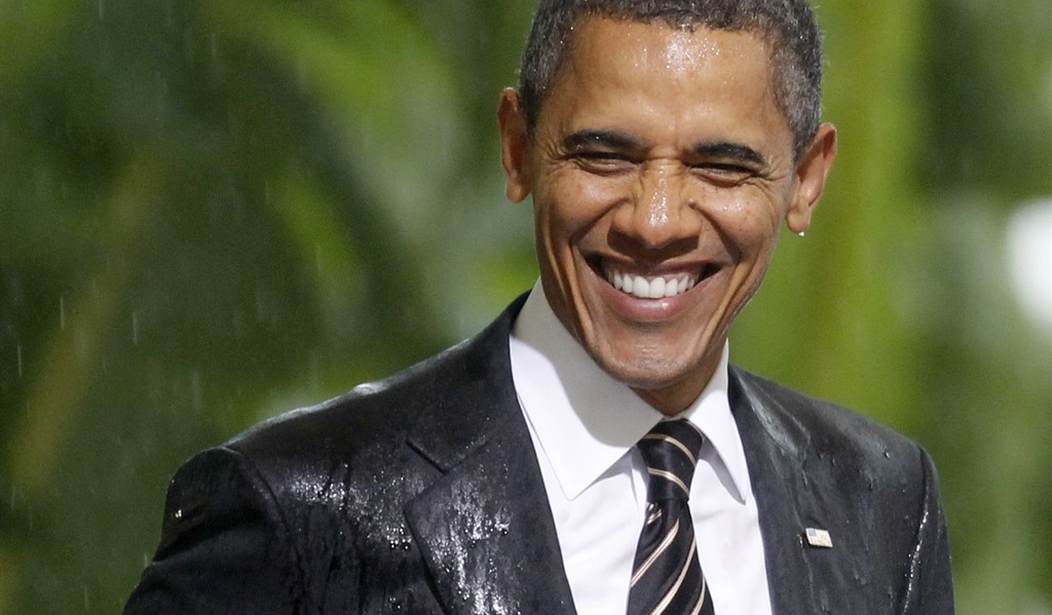Is it possible the nation used Barack Obama as he used us?
The liberal chattering class made much of President Obama’s approval rating of 67% when he entered office in 2009, compared to President Trump’s purportedly paltry 40-ish% on the morning of his inauguration. To rub it in, they smugly note Obama’s rating of 57% upon his departure. To a talking head, they ask the same question: How can Obama’s personal ratings be so high when the nation has repudiated his policies several elections in a row?
The question becomes especially inexplicable because America just elected a man who will likely relegate Obama’s record—not a legacy—to a few footnotes by historians 50 years from now. What the pundits have failed to understand about the 67% love affair over the past eight years is a fundamental trait in the psyche of many Americans. It underscores the best about our native optimism, and reveals the worst about our national naiveté.
Evidence of this became apparent to me when, as a young investigator for the U.S. Civil Service Commission over 40 years ago, I was one of many tasked with conducting discrimination complaint investigations arising in the federal sector as a result of new EEO laws and regulations. Many cases had similar fact patterns, but one stands out in memory. It involved a young black woman—let’s call her Ms. Smith—with a master’s degree in personnel management from a middling Midwestern university. She was hired by a regional office at the appropriate entry grade, GS-7, and was promoted in one year, as expected, to GS-9. After two years, she was terminated for incompetence. She filed a complaint claiming her termination was based on race.
What happened here? The mid-1970s were the iconic years when federal executives intended to lead the way in advancing minorities through aggressive affirmative action. Careers were made by filling slots with the “right” people. To those of us investigating the messes after some impatient managers, anxious to score EEO points, made hurried, ill-advised hiring decisions, it was one disaster after another for true equal employment opportunity.
Recommended
The common thread running through nearly all of the sworn testimony was this: staff knew they had a duty to give Smith a chance and testified they were anxious to do so, even when early indicators suggested success was not likely. Smith was promoted because managers “hoped” she would do better. Smith was right to file her complaint because discrimination and bigotry existed aplenty elsewhere. Readers in 2017 who think such attitudes did not exist aren’t grounded in reality. Today, such bigotry crosses racial lines, but back then, managers were incented to integrate the workforce, and while many did the job conscientiously, others did so without regard for the outcome.
Most of those early placements proved resoundingly successful. Ms. Smith herself was pleasant, articulate, and made a good impression. Yet, her work product made it hard to believe she held an undergraduate degree, much less, one at the graduate level. Under the same diversity pressures, many colleges and universities moved her and many other Smiths along. No doubt, everybody felt good about themselves. The reality was that Ms. Smith was indeed, incompetent—but she had been used.
Whether all the thousands of Smith cases had something to do with what happened in 2008 may be hotly debated. Yet, it seems that wherever Barack Obama presented himself, his charm and personal skills overshadowed any other criterion for professional accomplishment. Even so, he moved along at a rapid pace. At the national level, the media swooned, money poured in, and historical events went his way. His wondrous ability with a stump speech made comparisons to Clinton, Reagan, and Kennedy commonplace. And shrewd man that he is, he knew black America was his, and if he said just enough of the right things, many in guilt-ridden white America would pull the lever for him and feel good about doing it. Never mind that the new Senator Obama had no real record of life achievement—or much experience—behind his name. Checking the box would be what mattered.
What happened in 2008 was what happened all across America for the first time in the 1970s. Barack Obama was elected with 52.9% of the popular vote, yet entered office with a sky-high approval rating, a fact truly nonsensical given his thin resume—unless, of course, we accept the notion that much of the voter base used him to salve its collective conscience, and would prove they weren’t bigots, after all.
So, what did we get for our optimism and naiveté—in our hope for change? Failed economic and healthcare policies, a festering immigration problem, a racially and socially divided populace, and a Hellzapoppin’ world scene. All the while, Mr. Obama deluded himself into thinking his personal popularity somehow translated to a mandate for progressive whimsies. Nonetheless, he was re-elected and many cheered on the presidency most historians will likely find to have been singularly incompetent.
Just as so many Americans—some against their own good sense—voted for Barack Obama because he was black, a good many of the 65 million people who voted for Hillary Clinton almost did it to us again because of her gender, and no other reason. In truth, Obama voters used him as much as he used us. The price of conscience?
Today, there are competent legions cutting across all lines. Having seen what checklist choices in schools, factories, armies, and governments have done to us as a people, shouldn’t we insist there be but one relevant question: No matter the person’s gender, race, ethnicity, or religion, why not the best?

























Join the conversation as a VIP Member